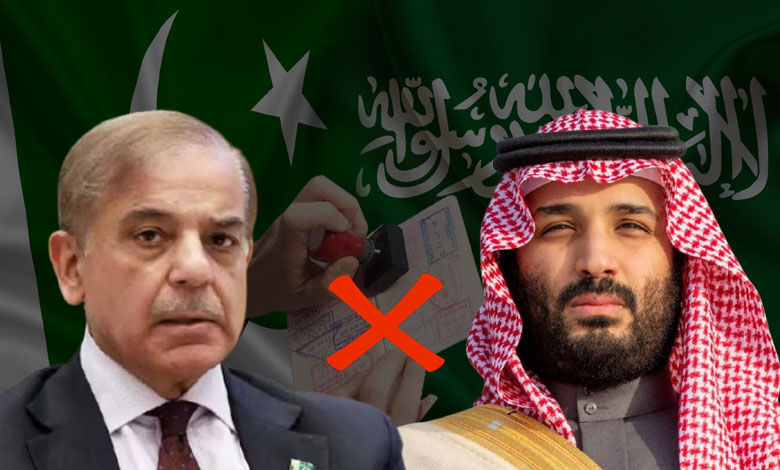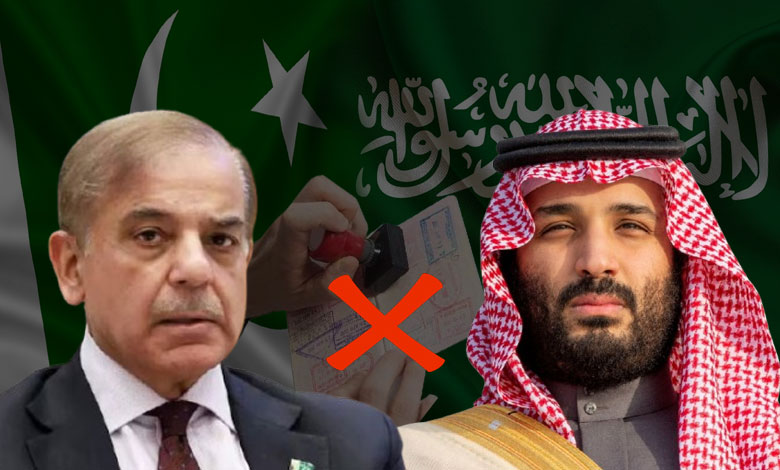Saudi Arabia and Gulf Countries Have Banned Pakistanis from Entry: Here’s Why
Saudi Arabia has announced a ban on Pakistani nationals from entering the kingdom unless they present a polio vaccination certificate. Learn about the reasons behind this decision and its impact on travelers from Pakistan.

Saudi Arabia has announced a ban on Pakistani nationals from entering the kingdom unless they present a polio vaccination certificate. Learn about the reasons behind this decision and its impact on travelers from Pakistan.
Pakistan’s General Authority of Civil Aviation (GACA) has announced that a polio vaccination certificate is now mandatory for Pakistani citizens traveling to Saudi Arabia. Anyone who fails to comply with this directive will face severe penalties and legal action.
Pakistan’s Continued Struggle with Polio
Pakistan remains one of the last two countries in the world that are still polio-endemic, alongside Afghanistan. The country saw a surge in poliovirus cases, with 68 instances of the disease reported in 2024 alone. Particularly troubling are the regions of Khyber Pakhtunkhwa (KP) and Balochistan, where polio vaccination campaigns have faced rejection, and health workers have even become victims of violence.

Saudi Arabia’s Directive Comes Amid Visa Restrictions
The Saudi government’s decision to require a polio vaccination certificate for Pakistani travelers comes amid a broader crackdown on immigration issues. Several Gulf countries, including Saudi Arabia and the UAE, have recently imposed stringent visa restrictions on Pakistani nationals. These restrictions stem from concerns about crime, fraud, begging, and other illegal activities.
Visa Bans and Deportations Affecting Pakistani Travelers
On January 9, 51 deported Pakistanis returned to Karachi from seven countries, with 30 passengers offloaded from international flights due to travel document issues. The UAE has also required Pakistani visa applicants to submit a police character certificate. Additionally, Gulf countries have imposed indefinite visa bans on applicants from over 30 cities in Pakistan. This is due to concerns over smuggling, drug trafficking, human trafficking, and the rising number of Pakistani nationals involved in criminal activities.

Impact on Pakistani Passport’s Reputation
The visa bans have further damaged the reputation of the Pakistani passport, which ranks as one of the worst globally. Many Pakistanis, particularly from smaller cities, are facing difficulties obtaining visas to work or travel to Gulf countries, which have traditionally been favored destinations.
Challenges for Pakistani Travelers and Laborers
Pakistani travelers have faced increasing difficulties in obtaining work and tourist visas, with many being rejected due to their involvement in criminal activities, such as begging and drug smuggling. In response, Gulf countries have shifted their focus to hiring workers from countries like India, Bangladesh, and Indonesia, leaving Pakistani nationals struggling to secure employment opportunities abroad.
Statistics on Pakistani Immigration Issues
More than 800,000 Pakistanis apply for visas to Gulf and Middle Eastern countries each year in search of job opportunities. However, issues like drug trafficking, illegal labor, and begging have led to the detention of thousands of Pakistanis, further straining relations with Gulf nations.
The Road Ahead for Pakistan’s Travelers
With ongoing visa restrictions and rejections, the future for Pakistani travelers seeking work or opportunities in the Gulf region looks increasingly uncertain. The government faces continued pressure to address the issues of criminal activity and improve the country’s international image.

